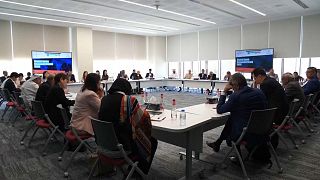East Africa
Sub-Saharan Africa’s economy is showing signs of resilience, with growth projected to hit 3.5% in 2025 and rise to 4.3% by 2027, according to the World Bank’s latest Africa’s Pulse report.
This recovery is being driven by rising private consumption and investment, alongside falling inflation — down from 7.1% in 2023 to 4.5% in 2024 — and more stable currencies.
Despite this progress, the region still faces steep challenges. Real income per capita is expected to remain 2% below 2015 levels in 2025, and poverty reduction is lagging.
Countries grappling with conflict and heavy reliance on natural resources are growing slower than more diversified economies.
Job creation also remains too weak to meet the needs of Africa’s fast-growing youth population.
The World Bank is urging urgent reforms to improve governance, boost private investment, and expand access to essential services. Leveraging the African Continental Free Trade Area (AfCFTA) is also seen as a key strategy for increasing trade, diversifying economies, and creating jobs.











11:19
Cyber Africa Forum highlights Benin's bold digital resilience [Business Africa]
01:11
Report: US cuts to foreign aid could cause more than 14 million deaths by 2030
Go to video
World Bank grants South Africa $1.5B for infrastructure, green energy
11:16
Angola hosts U.S.-Africa summit amid calls to revive trade ties {Business Africa}
01:23
Fourth edition of China-Africa Economic and Trade Expo opens in Changsha
02:20
VivaTech 2025: Africa takes center stage with bold AI ambitions